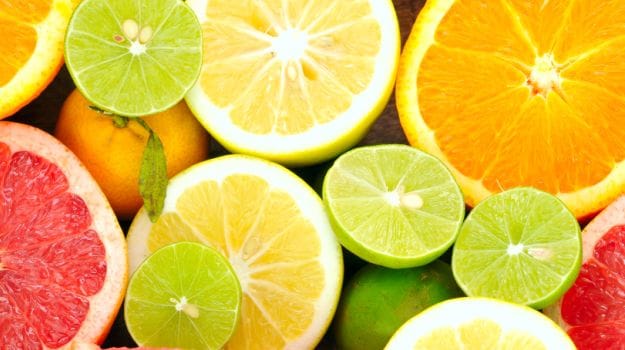Vitamin C is a vital nutrient that our bodies require. Also known as ascorbic acid, it is essential for the repair and growth of body tissues and strengthens the immune system. However, vitamin C deficiency is a serious problem faced by many individuals. According to the National Institutes of Health (NIH), a daily intake of at least 90 mg is recommended for adult males and 75 mg for adult females. Failing to meet these requirements can have a severe impact on overall health and lead to various health issues. Therefore, it is important to be aware of the warning signs of vitamin C deficiency and take the necessary steps to combat it. Let's explore some signs of vitamin C deficiency to watch out for and foods that can help boost your intake.
Also Read: Welcome Summers With These 6 Vitamin-C Rich Drinks

Here Are 5 Warning Signs That Your Body Is Low On Vitamin C:
1. Slow Wound Healing
Slow wound healing is one of the major signs of vitamin C deficiency. Since vitamin C plays an important role in tissue formation and collagen production, its deficiency can slow down and interfere with the healing process of wounds and injuries. In certain cases, old wounds may open due to the lack of this vitamin.
2. Fatigue And Weakness
Do you often feel lethargic and experience a decreased level of stamina? Then chances are that you might be lacking in vitamin C. Since vitamin C aids in the absorption of iron and also protects our cells from damage, it can help us feel more energetic and motivated in our work.
3. Bleeding Gums
Another common sign of vitamin C deficiency is bleeding gums. If your diet lacks sufficient amounts of vitamin C, your gum tissues can become weak and inflamed, and your blood vessels may be more prone to easy bleeding. Some individuals may also develop purple-coloured gums, which can indicate a more severe deficiency.
4. Easy Bruising
Are you wondering why you easily get bruised? It could be due to a deficiency in vitamin C. Insufficient vitamin C can result in reduced collagen production, weakening blood vessels and causing easy bruising, especially in places where you usually don't get bruises.
5. Weak Bones
A diet lacking in vitamin C could also impact your bone health. Numerous studies have demonstrated that a deficiency in this vitamin increases the risk of fractures and health conditions like osteoporosis. Furthermore, it may also contribute to joint and muscle discomfort.
Also Read: Beyond Oranges And Lemons: 5 Sources Of Vitamin C That Aren't Citrus Fruits

How To Cure Vitamin C Deficiency?
The best way to address this deficiency is to follow a diet rich in vitamin C foods. Certain fruits like oranges and lemons have citrus content and are excellent for treating this deficiency. Additionally, include foods like bell peppers, guava, papaya, and broccoli in your diet. It's also important to avoid overcooking the food, as it can lead to a loss of vitamin C.
What To Eat If You Are Suffering From Vitamin C Deficiency:
1. Citrus Fruits
Having citrus fruits is indeed one of the best ways to increase your vitamin C intake. Fruits like oranges, lemons, and grapefruits are rich in vitamin C and can be easily incorporated into your diet in various ways.
2. Bell Peppers
Bell peppers are an excellent source of vitamin C. According to data from the United States Department of Agriculture (USDA), orange, red, and yellow bell peppers all contain significant amounts of vitamin C, which can help prevent this deficiency. Therefore, make sure to include them in your diet as much as possible.
3. Broccoli
Apart from being a great veggie for maintaining overall health, did you know that broccoli also provides a significant amount of vitamin C? It is a naturally occurring source of vitamin C and helps repair damaged tissues. It also helps boost the immune system.

4. Guava
Guavas are a great source of vitamin C, as they are power-packed with antioxidants. Additionally, including them in your diet can also be beneficial for skin health. Looking for ways to incorporate it in your diet? Click here.
5. Papaya
Papaya is also known for its richness in vitamin C. Adding it to your daily diet may help prevent the deficiency. It is also low in calories and high in fibre, making it ideal for weight loss. If you want to include papaya in your diet, click here for some ideas. Here are some ways you can include papaya in your diet.
Now that you know about these foods, make sure to include them in your diet to prevent vitamin C deficiency.
Disclaimer: This content including advice provides generic information only. It is in no way a substitute for qualified medical opinion. Always consult a specialist or your own doctor for more information. NDTV does not claim responsibility for this information.
About Vaishali KapilaVaishali finds comfort in eating parathas and rajma chawal but is equally enthusiastic about exploring different cuisines. When she's not eating or baking, you can often find her curled up on the couch watching her favourite TV show - FRIENDS.






